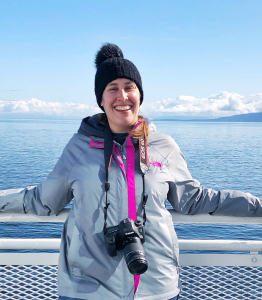Three years ago this week, rural New Brunswick made national news when RCMP clashed with a group of local protesters.
The provincial government had recently decided to let an American company test for possible shale gas deposits near the small village of Rexton, which, if found, could be extracted through a controversial process known as hydraulic fracturing, or fracking. Proponents promised jobs, but some community residents, including Rexton and Elsipogtog First Nation, claimed they hadn’t been properly consulted or informed about fracking’s potential environmental hazards, such as groundwater contamination.
Protesters blockaded a highway. RCMP eventually went in to enforce a court injunction calling for their removal. The confrontation turned violent.
Images from the conflict triggered anti-fracking protests across the country, and the province has since imposed an indefinite moratorium on fracking. But environmentalists say the situation could have been avoided altogether if a simple but powerful idea had taken root in Canada as it has in other countries: that is, that a healthy environment is a fundamental human right.
What are “green rights”?
The concept of “green rights” is explored in the documentary Green Rights: The Human Right to a Healthy World.
Written by Nova Scotia-based author and environmental activist Silver Donald Cameron and directed by former CBC Television producer Chris Beckett, the film details, through a series of interviews, cases from Argentina, Ecuador, the Netherlands and the Phillippines in which environmental lawyers have successfully sued governments and corporations on behalf of citizens affected or threatened by pollution. In those countries, and dozens of others around the world, the right to clean air and water is protected by law, and ordinary people have been able to use the courts to force private companies to remediate industrial waste sites, or governments to impose more stringent regulations on new and existing developments.
In Canada and the United States, environmental rights are not explicitly protected by law, meaning citizens have little recourse to hold polluters to account, or, as in Elsipogtog, prevent industrial development they fear will harm their quality of life, Cameron says. “Elsipogtog need not have taken place at all if those citizens had had their environmental rights respected.”
Cameron, who publishes conversations with other thinkers and activists in the environmental movement at his website, The Green Interview, says after five years of covering disputes about everything from forests to fisheries, he began to get “issue fatigue.” Then he met David Boyd, an environmental lawyer who has written two books on the subject of environmental rights and is a leading voice in the growing movement to see those rights enshrined in the Canadian constitution.
“I kept thinking, ‘What’s the most effective and important action we can take?’ And after talking to David, I thought, this is the best route for us. If we had the right to clean air, clean water, healthy food, we could take on any issue based on our right to have those things respected.”
Gaining traction
The idea is beginning to gain traction: in 2015, the David Suzuki Foundation launched the Blue Dot Movement, a campaign to mobilize support for an amendment to the Canadian Charter of Rights and Freedoms. A constitutional amendment requires the support of seven provincial legislatures representing at least 50 per cent of the populace; to date, more than 140 Canadian municipalities have adopted Blue Dot’s declaration on respecting people’s right to live in a healthy environment, and organizers are now seeking to have language concerning environmental rights added to provincial legislation.
“The biggest challenge would be converting our economy — moving away from fossil fuels and toward clean energy — but I believe it’s doable,” says Linda Ablack, an Ottawa organizer for the Blue Dot Movement. “The outcome would be beneficial to every human being and organism on the planet.”
Cameron believes that, far from tanking the economy, a recognition of environmental rights would simply “change the ground rules” for industrial development and resource extraction, paving the way for sustainable business and giving individual citizens a louder voice in decision-making processes.
“As it is right now, if you’re concerned and suffering, all you can do is go to the government and plead; well, that’s been tried for 50 years,” he says. “If individuals were able to take action of their own initiative, and sue the government or sue a company and say, ‘Their activities are infringing on my rights,’ the opportunities for change would be much greater.”





